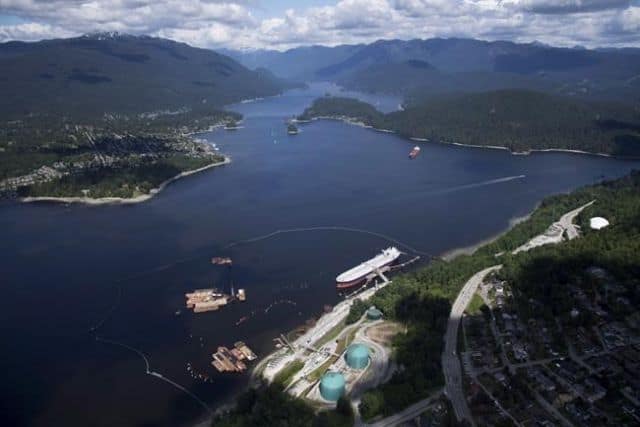
Canada’s parliamentary budget watchdog says the Liberal government paid the “sticker price” when it bought the Trans Mountain pipeline from Kinder Morgan for $4.4 billion.
Parliamentary Budget Officer Yves Giroux estimates the Trans Mountain pipeline and planned expansion project are worth between $3.6 billion and $4.6 billion.
This means government’s purchase price of $4.4 billion was at the high end of the project’s total calculated value.
“If it was a car, we would say they paid sticker price, they didn’t negotiate very much, they didn’t get that many deals or manufacturers rebates — quite the opposite,” Giroux told reporters Thursday morning.
Expanding the pipeline’s capacity will come at an estimated cost of $9.3 billion if the project is completed by Dec. 31, 2021, the PBO estimates.
But should the project encounter any construction delays or cost increases, Giroux says, “then it’s quite clear to us that the government would have overpaid” for the pipeline.
An existing pipeline connects Alberta’s oilpatch northeast of Edmonton to a terminal in Burnaby, B.C., and its owner Kinder Morgan tried to expand it for years to increase the amount of crude oil it could carry. The federal government bought the pipeline from Kinder Morgan in August after political opposition to expanding the pipeline between Alberta and the B.C. coast gave the company and its investors cold feet. (It announced the purchase price as $4.5 billion but Giroux reported that after final adjustments, the net payment to Kinder Morgan was $4.4 billion.)
The PBO analysis did note the project could have positive impacts on the country’s economy and on oil prices if the expansion is completed on time and on budget. But the fact the government was the only buyer is a warning sign.
“It’s a very risky project to have bought something that nobody else in the private sector wanted to acquire. There are lots of retirement or pension plans that like to buy infrastructure of that nature that generate streams of revenues,” Giroux said.
Ottawa is now consulting with Indigenous groups and the board has been reviewing the marine effects.
The board is to have its report ready by Feb. 22.


